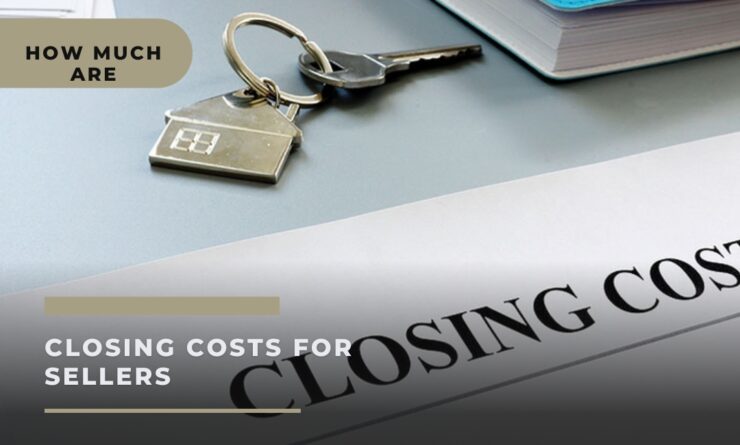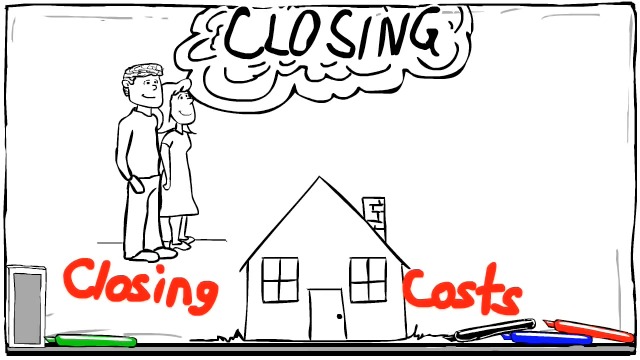While it’s the buyer who typically covers the bulk of expenses in a home purchase, sellers aren’t exempt from costs. Before you start counting the gains from your sale, it’s essential to factor in the closing costs: these are the charges linked to finalizing the sale and transferring property ownership.
The precise amount you’ll pay in closing costs can differ based on your location and the specifics of the deal. Let’s dive deeper into the common closing costs that home sellers should anticipate.
What Do “Closing Costs” Mean?
“Closing costs” refer to the assortment of charges that arise when finalizing a real estate deal. This umbrella term encompasses various fees such as escrow charges, loan initiation fees, title insurance, and more. Both the buyer and the seller bear these costs, but the distribution of who pays which fee is often up for negotiation.
Generally, these fees can constitute about 3 to 5 percent of the loan’s total value. However, 2022 statistics from CoreLogic’s ClosingCorp indicate that the national average for closing costs stands at roughly 1.8 percent of the property’s selling price. On average, for a single-family home in the U.S., the closing costs amount to $6,905, as stated by ClosingCorp.
Seller’s Closing Costs Explained
It’s essential to differentiate between closing costs and real estate commissions, even though they might sometimes be mentioned together. While both are settled at the closing of the sale, they serve different purposes. Commissions are predominantly borne by the seller.
Historically, these commissions have hovered around 6% of the property’s sale price. However, recent trends suggest a decline, with commissions now leaning towards 5%. For instance, for a home sold at $400,000, a 5% commission translates to $20,000.
This commission is usually divided equally between the buyer’s and seller’s agents. This means that as a seller, you’re essentially compensating both your agent and the buyer’s representative.
Now, let’s delve into a detailed list of standard closing costs that sellers should anticipate:
| Types of closing fees | Average cost |
|---|---|
| Data sources: The Mortgage Reports and My Mortgage Insider | |
| Transfer taxes | Varies by geographic location |
| Title Insurance | $550 |
| Escrow fees | $350 to $1,000 |
| Attorney fees | Varies |
| Outstanding amount owed on mortgage | Varies |
Closing costs paid by buyers
Although both homebuyers and sellers pay closing costs, the buyer is usually the party responsible for the bulk of the closing fees in a real estate sale.
However, the exact amount each party pays is often part of the negotiations, and it’s common practice for the seller to offer a credit for some or all of the buyer’s closing costs. This practice referred to as seller concessions, can help make a home more attractive to potential buyers.
Here’s a breakdown of some of the typical closing costs for buyers:
| Types of closing fees | Average cost |
|---|---|
| Sources: The Mortgage Reports and My Mortgage Insider | |
| Attorney fees | Varies |
| Loan origination fee | 1% of loan amount |
| Appraisal fees | $450 |
| Processing fee or underwriting fee | $450 |
| Credit report fees | $35 |
| Home inspection fees | $300 to $500 |
| Escrow and signing | $450 |
| Recording fees | $110 |
| Title search fee and title insurance | $300 to $2,500 |
When Do You Need to Pay Closing Costs?
The term “closing costs” is quite literal, implying that these fees are payable at the time of the property’s closing — the concluding phase when you transfer the home’s keys to its new owner.
These costs are settled during the final meeting with the closing agent, title company, and/or attorney, where funds are distributed and necessary paperwork is signed to finalize the sale.
It’s crucial to understand the phrase “due when you close.” Ensure you have your payment methods, such as checks or money orders, ready beforehand. Bring them to the closing meeting, as you’ll be expected to hand them over immediately, not at a subsequent time.
By law, both parties involved in the transaction — the buyer and the seller — must be provided with detailed closing documents at least three days prior to the actual closing. These documents will comprehensively outline all the closing fees, ensuring transparency in the transaction.
Ways to Minimize Closing Costs
For sellers, the silver lining is that closing costs are typically deducted from the sale proceeds, meaning there’s usually no need for additional out-of-pocket expenses. However, if you’re keen on reducing these costs further, here are some strategies to consider:
- Negotiate with Your Agent: Discuss with your real estate agent about possibly accepting a reduced commission. Alternatively, consider partnering with an agent who provides services at a discount. Keep in mind, though, that a lower commission might mean fewer marketing services for your property.
- Shop for Better Mortgage Deals: Explore various mortgage lenders to find one that offers competitive rates and lower fees for loan initiation and other related costs.
- Sell It Yourself: Contemplate selling your property independently. Opting for a For Sale By Owner (FSBO) approach can eliminate agent commissions, allowing you to retain a larger portion of your home’s sale price. However, this method demands significant effort and time on your part.
- Shift the Burden: You can propose that the buyer covers the closing costs. Another tactic is to slightly increase your home’s selling price and, in return, agree to handle the buyer’s associated fees.
- Haggle with Professionals: Engage in negotiations with your real estate attorney or title company for more favorable terms or reduced fees.
By employing these strategies, you can potentially save a significant amount on your closing costs, ensuring a more profitable sale.
Selling your home for cash
Selling for cash, whether to an iBuyer or any company or individual that does not have to finance the purchase with a mortgage, is another way to reduce your closing costs. All-cash deals do not involve banks or other lenders, which means no fees on that side of things.
In addition, selling to an iBuyer does not involve real estate agents either, which means no commission fees. However, be aware that these companies typically offer you less money for your home that you would get with a traditional sale.
FAQ
Do sellers pay closing costs in NY?
Yes, sellers in New York typically have closing costs to pay, which can include the broker’s commission, transfer taxes, attorney fees, and other associated charges. The exact amount and distribution of these costs can vary based on the specifics of the transaction.
How much are closing costs in Florida for the seller?
In Florida, sellers can expect to pay between 1% to 3% of the home’s sale price in closing costs. This includes fees such as the real estate commission, title insurance, and other related expenses. However, the exact amount can vary based on the property’s location and the terms of the sale.
Who pays closing costs in Florida, the buyer or the seller?
Both the buyer and the seller have closing costs in Florida. Typically, the buyer covers costs related to their mortgage loan, while the seller handles the real estate commission and other associated fees. However, who pays what can often be a point of negotiation between the two parties.
How much are closing costs in California for the buyer?
In California, buyers can generally expect to pay between 1% to 3% of the home’s purchase price in closing costs. This includes loan-related fees, title insurance, escrow fees, and more. The exact amount can vary based on the specifics of the transaction and the lender’s charges.
How much are closing costs on a $300,000 house in Florida?
For a $300,000 house in Florida, closing costs can range from $3,000 to $9,000, given the typical range of 1% to 3%. The exact amount will depend on various factors, including the terms negotiated between the buyer and seller.
Can the seller pay all closing costs in Florida?
Yes, it’s possible for the seller to cover all closing costs in Florida. However, this is typically a point of negotiation between the buyer and seller. It might be done in exchange for a higher purchase price or other favorable terms for the seller.
Bottom line
While buyers typically pay the bulk of a real estate transaction’s closing costs, sellers must pay some costs as well. Keep in mind that your closing costs as the seller are in addition to the other costs of selling a house, including home repairs, staging costs and mortgage payments if you buy another house before your previous one sells. You may also be responsible for capital gains tax on the sale, which can impact your bottom line overall.
















